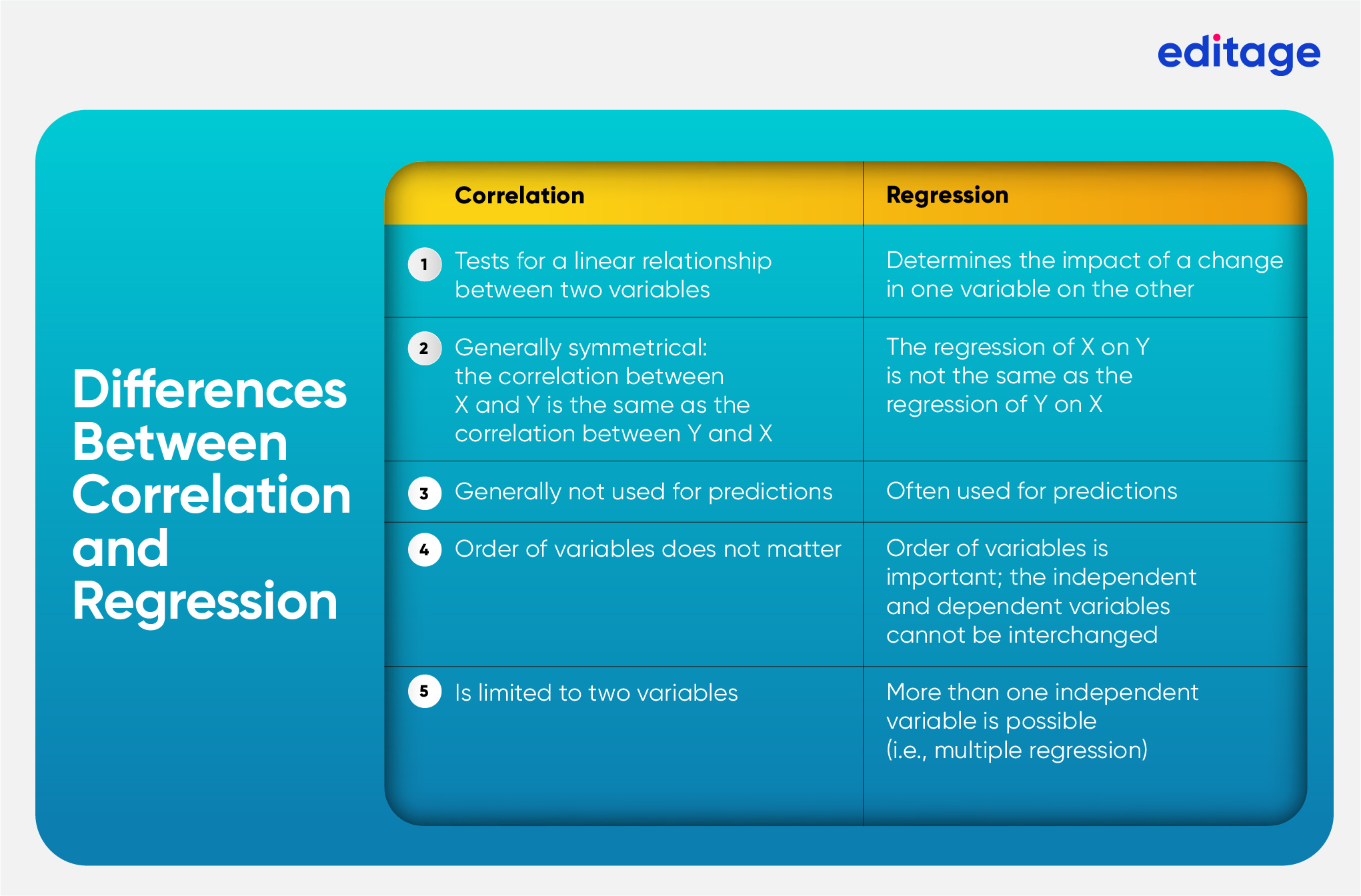Infographic: Differences between correlation and regression: Learn about different types of statistical relationships

One of the most common forms of hypothesis testing in biomedical research is whether two variables are related or not (i.e., whether the value of one variable changes as the other variable changes). Statisticians use various terms to describe these relationships, the most common of which are “correlation”, “association”, and “regression.” However, these terms can’t be used interchangeably. Let’s look at each of these relationships in detail.
Correlation Definition
“Correlation” refers to the linear relationship between two continuous variables. If the variables are normally distributed, you can calculate Pearson’s correlation coefficient (r); for non-normally distributed variables, you can calculate Spearman’s rank-order correlation coefficient (ρ).
Association Definition
The term “association” is used to describe the relationship between two categorical variables. The most commonly used test for association is the chi-square test of independence.
Regression Definition
Regression is a type of statistical analysis that specifically estimates the relationship between a dependent variable and one or more independent variables.
Difference between Correlation and Regression: Correlation vs. Regression
As mentioned above, “correlation” and “regression” can’t be used interchangeably. The table below explains the differences between them.
Would you like expert guidance when evaluating relationships among your study variables? Schedule a call with a biostatistician under Editage’s Statistical Analysis & Review Services.
Differences between correlation and regression_0.jpg







